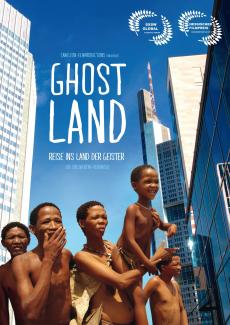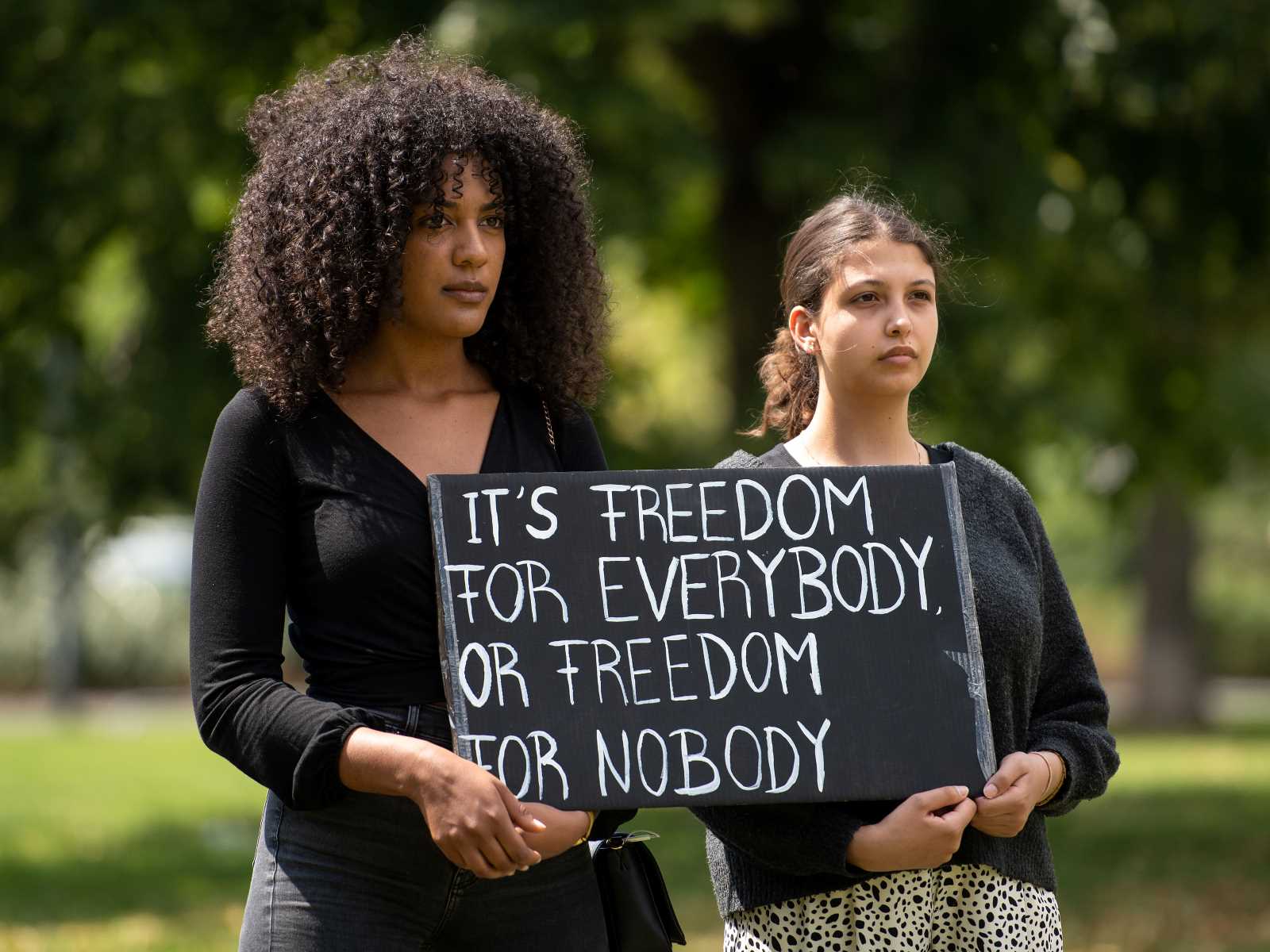Summer Special
Amusing and philosophical

The film opens in northeastern Namibia, in a village of the Ju/'Hoansi San in the Kalahari desert. The San are the oldest indigenous people on the planet. Some still follow the ancient traditions, living in simple straw huts and wearing leather loincloths. But the foundation that holds up their world has eroded. In 1990, Namibia outlawed hunting by the Ju/'Hoansi. Farmers have fenced in what was once an endless expanse of dry savannah, leaving this nomadic people with nowhere left to roam. Deprived of their livelihood and forced to stay in one place, they depend on state welfare and the income tourists bring in.
The Ju/'Hoansi can still demonstrate their traditional hunting skills with a bow and arrow for tourists, but cannot eat the wild animals that were once a staple diet. The sorrow inherent in losing a world we find anachronistic resonates from the outset of the film, though it is neither melodramatic nor maudlin. The villagers describe their situation fairly impartially, and the filmmakers refrain from judgement or comment. So the encounter between the small, tanned, mostly naked people and some mildly sunburnt tourists comes across as entertaining rather than anxiety provoking.
The film takes a truly amusing turn when a group of Ju/'Hoansi boards a coach and sets out on a tour of Namibia. San of all ages marvel at the goods that line the supermarket shelves, take their first dip in a swimming pool and drink their first can of cola. The sincere joy of discovery as young and old explore a more familiar world is delightful.
Part three accompanies two men and two women from the Ju/'Hoansi on a few days in Germany. Here the film grows more philosophical while still maintaining its lighthearted approach. Unsurprisingly, the city of Frankfurt is a huge culture shock. The film team stays low key, content to just record as the African visitors talk about their impressions. They are both funny and profound: "People in Germany never sleep; they work all the time. And then they're so stressed out, they have to visit us to recover."
The 2016 film has been a great national and international success and has been shown at a number of festivals and won various film and audience awards. The road movie’s charm lies in the authenticity of its actors and the unbiased narrative style. It doesn't point a finger at anyone or falls back on sloppy sentimentality, choosing instead to reveal the sources of the problems without interpretation. The protagonists hold a mirror up to us and our society. Their excursion into modern, urban Germany reveals that our way of life is not as universally appealing we think it is. People living in supposedly primitive conditions do not immediately envy our apparent land of milk and honey.
The visitors enjoy their time in Germany, seeing Frankfurt from the top of a skyscraper, catching a film at the cinema and other western activities. Ultimately, though, none of the four San express an interest in staying in Germany. They are homesick and long to return to their village community. To them, our western ideals of individualism and self-realisation seem foreign and wrong.
Director and ethnologist Simon Stadler was a bit taken aback at his film’s success. Maybe it captures the spirit of our times, he suggests: “Our world is very selfish and consumption-oriented. A lot of people are looking for other solutions and a different meaning.” Ghostland offers some alternatives. The Ju/'Hoansi supplied the title, by the way, when then said that white European men looked like the ghosts of the San's ancestors.
Film
Ghostland – the view of the Ju/'Hoansi, 2016, Germany, directors: Simon Stadler, Catenia Lermer, Sven Methling.
Ghostland is available on DVD and via multiple streaming services in many countries around the world. Many TV stations in Europe, the USA and Africa have purchased the rights and still broadcast the documentary. For more detailed information, please visit: http://www.ghostland-themovie.com/index.php?lang=en












